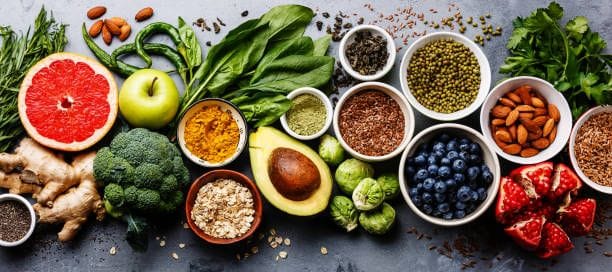Introduction:
Have you ever considered your body as a high-performance engine, needing the right fuel to function at its peak? Understanding the role of nutrition in your fitness journey is akin to learning the operations of a finely-tuned sports car. When you nourish your body correctly, you enhance its ability to grow, heal, and excel. This comprehensive guide will delve into the fundamentals of nutrition and how it impacts your fitness, providing practical tips to make informed decisions about your diet. You will learn how to fuel your body for success, effectively turning your nutrition into your most potent weapon in the quest for optimal fitness.
Part 1: Understanding the Role of Nutrition in Fitness
Chapter 1: The Essence of Nutrition
Nutrition fuels your body's functions, processes, and performance. It provides the building blocks needed to repair tissues, muscles, and organs, influencing your overall health and well-being. In the context of fitness, your nutritional choices can directly impact your performance, recovery, and progress.
Chapter 2: The Macronutrients
Macronutrients – protein, carbohydrates, and fats – are the primary components of your diet. They are necessary in larger quantities and provide energy (calories) to your body. Each macronutrient plays a unique role in body function and fitness performance:
- Proteins are the body's building blocks, crucial for repairing and building muscle tissues.
- Carbohydrates are the body's preferred energy source, fueling your workouts and replenishing glycogen stores.
- Fats support hormone production, provide long-lasting energy, and aid in nutrient absorption.
Chapter 3: The Micronutrients
Micronutrients - vitamins and minerals - are required in smaller amounts but are no less vital. They support numerous body functions, like immune response, energy production, bone health, and cellular repair. A deficiency can hinder performance and recovery.
Part 2: Personalizing Your Nutrition for Fitness
Chapter 4: Determining Your Nutritional Needs
Your nutritional needs depend on various factors, such as age, sex, body composition, activity level, and fitness goals. Using calculators and apps can provide an estimate of your daily caloric needs and macronutrient distribution.
Chapter 5: Creating a Balanced Diet
A balanced diet provides all the necessary nutrients in the right proportions. Incorporate a variety of nutrient-dense foods - lean proteins, whole grains, fruits, vegetables, and healthy fats - to ensure your body gets the wide array of nutrients it needs.
Chapter 6: Timing Your Meals
Proper meal timing can optimize your performance and recovery. Eating balanced meals and snacks evenly distributed throughout the day can maintain stable energy levels. Pre and post-workout nutrition play a key role in fueling your workouts and supporting recovery.
Part 3: Optimizing Nutrition for Different Fitness Goals
Chapter 7: Nutrition for Muscle Gain
Building muscle requires a caloric surplus, adequate protein intake, and a balanced intake of carbohydrates and fats. Strategies like timing protein around workouts and increasing meal frequency can support muscle growth.
Chapter 8: Nutrition for Fat Loss
To lose fat, a caloric deficit is necessary. However, maintaining sufficient protein and focusing on nutrient-dense foods can protect muscle mass and maintain satiety during weight loss.
Chapter 9: Nutrition for Athletic Performance
For athletes, nutrition demands are higher and more specific. Emphasis is placed on meal timing, nutrient density, adequate hydration, and specific nutrients that can improve performance and speed recovery.
Part 4: Implementing a Sustainable Approach to Nutrition
Chapter 10: Overcoming Common Nutritional Challenges
Identifying and addressing common nutritional challenges like emotional eating, dining out, and travel can keep you on track. Developing personalized strategies will help make your nutritional plan sustainable and adaptable.
Chapter 11: Debunking Nutritional Myths
Unravel the truths behind common nutritional myths and misconceptions. This knowledge will empower you to make informed decisions and resist dietary fads that promise quick fixes but lack scientific evidence.
Chapter 12: Embracing Nutrition as a Lifestyle
Long-term success with nutrition involves adopting habits that can be sustained. Rather than drastic changes, focus on small, achievable adjustments that can yield significant results over time.
Conclusion:
Understanding the role of nutrition in fitness is a journey, not a destination. It's about continually learning, experimenting, and adapting your approach based on your changing needs and goals. As you become more attuned to your body and its responses, you will learn how to fuel it effectively, enabling you to reach and maintain your fitness goals successfully.
Fueling your body with the right nutrition is not just about enhancing physical performance—it's about nourishing your overall well-being. It's a commitment to respecting your body, understanding its needs, and empowering it to perform its best. So, here's to making informed nutritional choices and celebrating the fitness gains that come with it!



